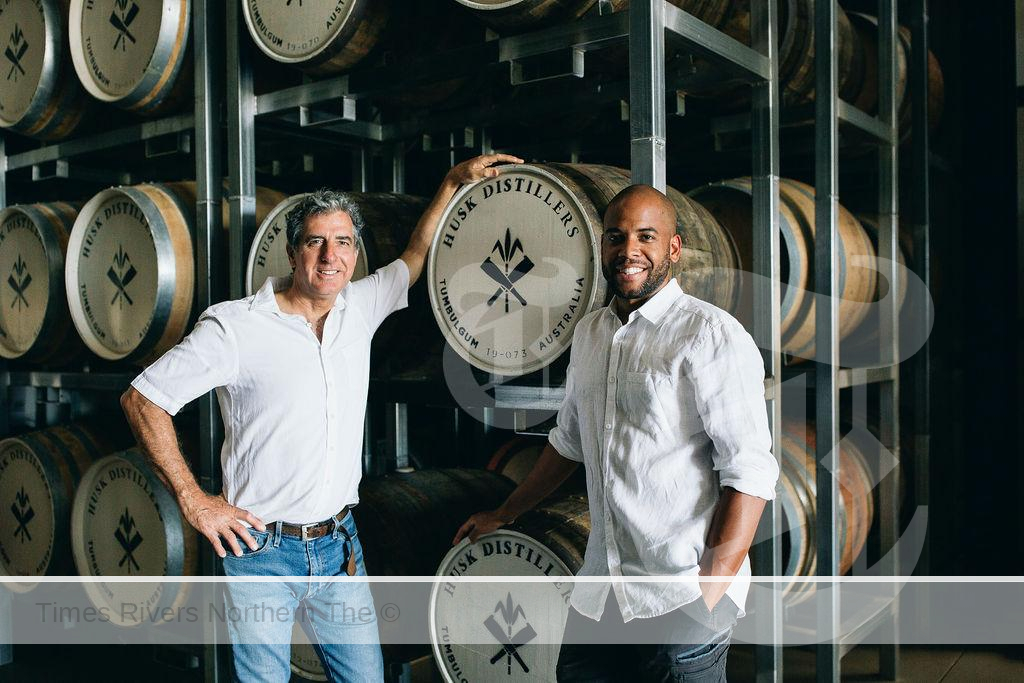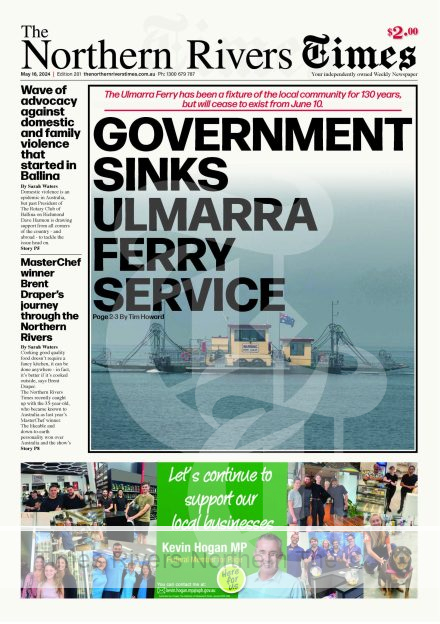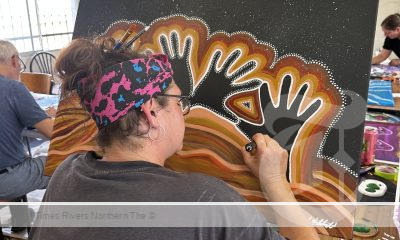Husk’s Head Distiller Quentin Brival creates Caribbean – style rum among the Tweed Valley cane fields
By Sarah Waters
When Quentin Brival, 32, arrived in Australia nine years ago, he was looking for a rum with vibrancy and freshness that reminded him of his home in Martinique, but he couldn’t find it.
Quentin grew up in a culture associated with rum.
Advertisements

Martinique is a small French-speaking Caribbean Island that produces some of the world’s best Rhum Agricole (agricultural rum made from sugarcane juice).
The sight of farm workers harvesting sugarcane for rum distilleries dotted along the 80km Island was part of Quentin’s life.
As was, the taste and smell of rum.
No matter where the former system engineer’s travels would take him in the world, when he found Agricole rum it would ‘link’ him back to his home in the Caribbean.
“We have a real appreciation of rum and a very rich culture around it in Martinique,” Quentin said.
“We don’t drink it to get drunk, but instead we get together, savour the flavour, and share good times.
“I left the Caribbean with that in mind, I never really thought ‘I’m going to make rum’ – it was just part of who you are,” he said.
Quentin lived and worked in many countries across the world, including France, Spain, Canada, India and China, before he settled in Perth.
Wherever he went, he could usually find a good Agricole rum.
But Australia didn’t have what he was looking for.

Husk Founder and CEO Paul Messenger and Head Distiller Quentin Brival.
“Australia does have a rich history around rum, but it has been dominated mainly by a few big brands,” Quentin said.
“There wasn’t a rum that I liked, and it felt like I had lost that link to home.”
Quentin decided he would make his own Agricole rum.
He brought some sugarcane, planted it in is backyard and thought about how he could make a good rum similar to what he enjoyed so much in Martinique.
As there were no real training facilities on how to become a distiller of fine spirits, Quentin instead asked questions at local distilleries and drew heavily on his background.
“I was born in a nation that perfected that craft (of making rum) over many centuries, so I had a very clear idea of what an excellent rum tasted like,” he said.
“My engineering background helped a lot, because I believe distillation is a mix of art and science.
“There are clear principals you have to follow in order to make alcohol and chemical reactions you need to understand.
“But then you might follow processes exactly to the measure and the outcome is not exactly what you wanted, so there is a bit of that artistic expression where you smell and taste the product and you work out if you’re on the right path or not.”
Quentin produced Agricole rum on a very small scale in his backyard and started to think seriously about starting his own distillery.
But, while he was reading the French magazine Rumporter, he came across an article about Husk – Australia’s first agricultural rum distillery.
“What really fascinated me was that Paul Messenger (Husk founder and CEO) went to the Caribbean and he fell in love with the culture.
“He grew up here where you’re surrounded by sugarcane and thought how come we don’t have more of that rum here.”
Quentin decided that he and Paul needed to meet.
He jumped on a plane, travelled down to Husk in Tumbulgum and two worlds aligned.
Paul fortuitously needed help as he looked to grow Husk.

Quentin Brival and the team at Husk Distillers turn sugarcane into fine quality spirits.
Quentin had the wealth of Caribbean-rum-making-knowledge that he was after.
“I was really impressed by the rum that he was making, because it was exactly what we do back home,” Quentin said.
“But the big test was to taste what he was making.
“There’s a lot of people who make a certain style of rum, but until you taste it and smell it, you’re not really sure if they’re the real deal.
“He brought me a glass and as soon as I smelt it, I knew he was the real deal – it had that vibrant, fresh cane juice smell and it was like I was back home.”
In 2017, Quentin joined the Husk team as the head distiller.
He has helped to craft some of the country’s most unique and talked about Agricole rums and is also behind the popular Ink Gin.
The path to get to that point has not been without its challenges, however.
Most rum is made from molasses which means it can be stored – fresh sugarcane juice can’t.
Husk’s ‘farm-to-bottle’ set up means it uses sugarcane which is grown and processed on Paul Messenger’s farm.
The process of making the rum revolves around the annual cycle of the sugarcane crop and starts with harvesting.
Quentin said he and the team at Husk are farmers as well as distillers.
“There are not many distillers in the world that go to the extent of growing what they are going to use in their spirit,” he said.
“Here at Husk, we grow the sugarcane and once a year we harvest it, crush it in the mill that was purpose-built for it and go through the whole process.”
Once the sugarcane is crushed and the juice is extracted, distillers need to act fast as the indigenous yeast and bacteria start to consume the sugar in the juice.
The pH level and sugar content are adjusted and cultured yeast is added.
Quentin said they want the microorganisms from the cane to express themselves, to get that complex, vibrant, agricultural rum that allows the connection to the land to come through.
“It’s a bit of a balancing act between letting nature express itself and also controlling the process so you have a good quality product,” he said.
“A lot of patience and passion is involved.
“With all the product that we make we try to reach a good balanced (rum).
“Through a process of errors and continuous improvements you can slowly get to that point where you’ve got to that quality of rum which you know is good.”
Quentin and the team at Husk continue to change the rum scene in Australia by crafting their unique style of award-winning Australian Cultivated Rum (ACR).
For more Tweed Shire news, click here.





 Tweed Shire News2 years ago
Tweed Shire News2 years ago
 Motoring News1 year ago
Motoring News1 year ago
 COVID-19 Northern Rivers News3 years ago
COVID-19 Northern Rivers News3 years ago
 COVID-19 Northern Rivers News3 years ago
COVID-19 Northern Rivers News3 years ago
 Northern Rivers Local News3 years ago
Northern Rivers Local News3 years ago
 Health News3 years ago
Health News3 years ago
 COVID-19 Northern Rivers News3 years ago
COVID-19 Northern Rivers News3 years ago
 NSW Breaking News3 years ago
NSW Breaking News3 years ago
































